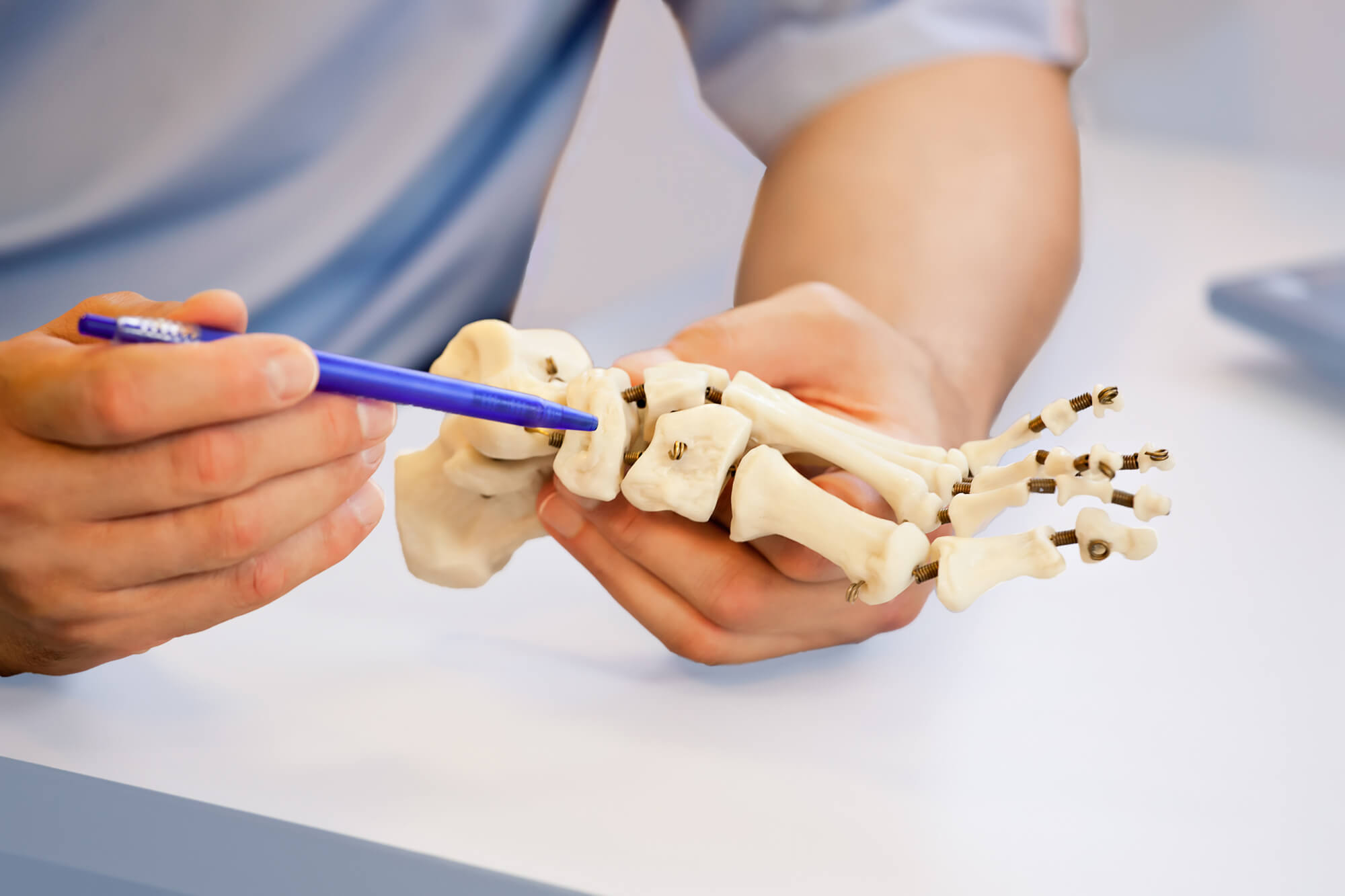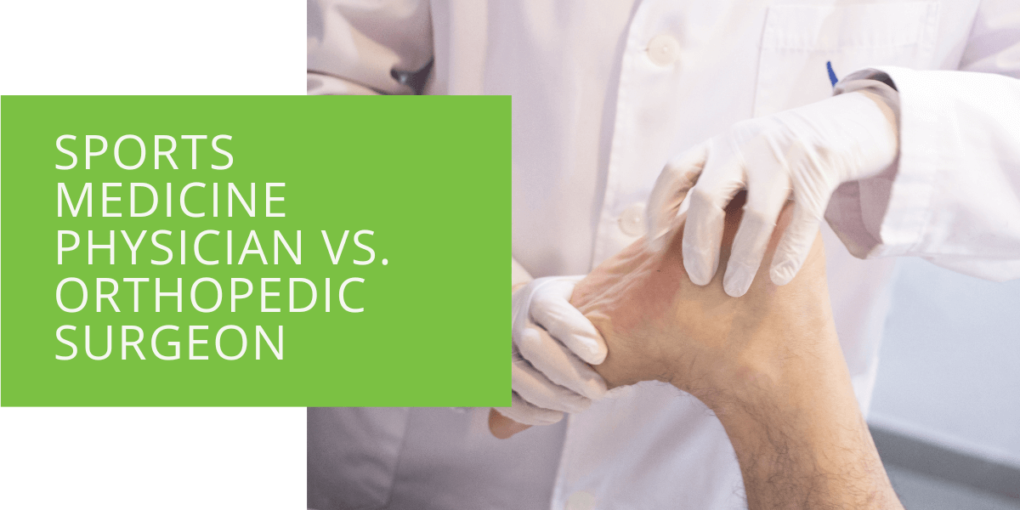Sports Medicine Physician vs. Orthopedic Surgeon
In today's world, sports have become an integral part of our lives. Many people participate in various sporting activities, from running and walking to basketball and soccer. As sports-related injuries are common, seeking medical attention when you're hurt is essential. However, the question that arises is which medical professional you should see. This article will compare sports medicine physicians and orthopedic surgeons and provide insight into the differences, helping you decide when you need medical care.
Sports Medicine Physician
A sports medicine physician is a medical professional who specializes in the musculoskeletal system, particularly sports injuries. They are trained to diagnose and treat patients who have musculoskeletal problems due to sports or exercise. They can specialize in nonsurgical or minimally invasive procedures to treat sports injuries, such as sprains, overuse injuries, fractures, and even concussions.
Sports medicine physicians undergo a specialized training that equips them with knowledge and expertise to treat patients of all ages and skill levels. They also develop training plans to help athletes avoid injuries by working on flexibility, strength, and endurance.
Orthopedic Surgeon
Orthopedic surgeons are medical professionals who specialize in the diagnosis and treatment of musculoskeletal disorders. They focus on diagnosing, treating, and preventing musculoskeletal injuries and conditions, such as arthritis, fractures, and dislocations, that may require surgery.
Orthopedic surgeons undergo extensive training, which includes medical school, residency, and fellowship programs. They specialize in different areas of orthopedics, such as hand surgery, joint replacement, and sports medicine. They use surgical and non-surgical techniques to treat patients with musculoskeletal injuries or conditions.

Differences between a Sports Medicine Physician and Orthopedic Surgeon
Education and Training
A sports medicine physician requires a medical degree followed by a three-year residency program in family medicine, internal medicine, emergency medicine, pediatrics, or physical medicine and rehabilitation. Afterward, they must complete a one or two-year sports medicine fellowship.
An orthopedic surgeon also requires a medical degree, followed by a five-year residency program in orthopedics. After that, they can pursue further fellowship training in specific areas such as sports medicine, hand surgery, or joint replacement.
Duties and Responsibilities
Sports medicine physicians focus on diagnosing and treating sports-related injuries, providing preventive care, and developing training plans for athletes to avoid future injuries. They often work with physical therapists, athletic trainers, and other medical professionals to help patients recover from injuries.
Orthopedic surgeons focus on treating a wide range of musculoskeletal injuries and conditions, from arthritis to fractures, dislocations, and more. They can use surgical or nonsurgical techniques to manage these conditions and injuries.
Conditions They Treat
Sports medicine physicians treat sports-related injuries, such as sprains, strains, overuse injuries, fractures, and concussions. They also treat chronic conditions that affect athletes, such as tendinitis, bursitis, and stress fractures.
Orthopedic surgeons treat a broader range of conditions, including sports injuries, degenerative diseases such as osteoarthritis, and other conditions that affect the musculoskeletal system.

Which Medical Professional to Choose for Specific Injuries or Conditions?
Choosing the right medical professional can be crucial to your recovery when it comes to podiatry-related injuries or conditions. Here's a breakdown of which medical professional to choose for specific injuries or conditions:
Sports Medicine Physician
Sports medicine physicians specialize in sports-related injuries and conditions, particularly those affecting the musculoskeletal system. They can treat a range of conditions and injuries, including:
- Sprains and strains
- Overuse injuries, such as tendinitis and stress fractures
- Ligament and tendon injuries
- Muscle injuries
- Concussions
Sports medicine doctors and physicians use a variety of treatments to help patients recover from their injuries, including:
- Physical therapy
- Medications
- Nonsurgical procedures, such as injections
- Minimally invasive procedures, such as arthroscopy
A sports medicine physician may be your best choice if you have a sports-related injury or overuse injury. They can provide specialized care to help you recover quickly and prevent future injuries.

Orthopedic Surgeon
Orthopedic surgeons specialize in the diagnosis and treatment of musculoskeletal conditions and injuries. They can treat a broader range of conditions and injuries, including:
- Fractures and dislocations
- Arthritis and other degenerative joint diseases
- Congenital disorders
- Spine conditions
- Bone tumors
Orthopedic doctors and surgeons use a range of treatments to manage these conditions and injuries, including:
- Surgery, such as joint replacement, spine surgery, or fracture repair
- Nonsurgical treatments, such as medications and physical therapy
If you have a severe injury or condition that requires surgery, an orthopedic surgeon may be your best option. They have the expertise to perform various surgical procedures to manage your condition effectively.
Choosing the Right Medical Professional
Choosing the right medical professional for your injury or condition depends on several factors, including the type and severity. It's important to consider the following when deciding which medical professional to see:
- Type of injury or condition
- The severity of the injury or condition
- Medical history
- Personal preferences
In some cases, combining treatments from both medical professionals may be necessary to effectively manage the injury or condition.
Conclusion
Both sports medicine physicians and orthopedic surgeons have unique skills and expertise that make them valuable in the field of sports medicine. Choosing the right medical professional depends on your type of injury or condition. A sports medicine physician can be an excellent choice for sports-related injuries and preventive care. At the same time, an orthopedic surgeon may be the best option for more severe injuries or conditions requiring surgery. By choosing the right medical professional, you can get the treatment and care you need to recover from your injuries and return to the activities you love.

